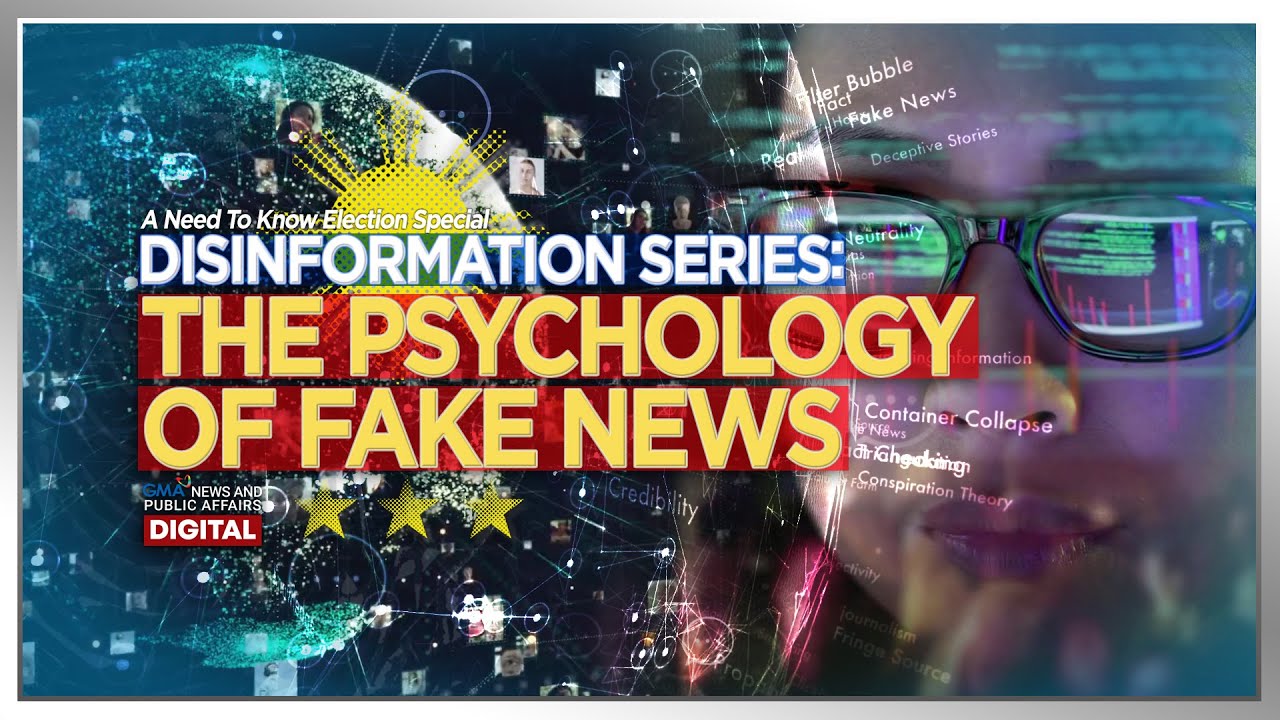The Age of Disinformation
Summary
TLDRIn this conversation, Aaron McCain delves into the complexities of disinformation in modern society, emphasizing how it distorts truth and creates societal divides. He discusses how disinformation is used in politics, its psychological impact on individuals, and the dangers posed by AI amplifying biased information. McCain calls for a unified approach to combat disinformation, leveraging empathy and shared experiences. The conversation stresses the need for action to prevent further polarization and highlights the role of technology and media in shaping public perception and reality.
Takeaways
- 😀 AI plays a significant role in transforming the current and future technological landscape.
- 😀 It is important to stay updated and engaged with AI advancements, as they will impact our future society.
- 😀 The potential of AI and its capabilities can be both exciting and overwhelming for businesses and individuals alike.
- 😀 Collaboration and sharing of information are crucial in navigating the evolving AI space.
- 😀 Building a shared understanding of AI's challenges and opportunities is vital for progress.
- 😀 The advancement of AI will create increasing complexity in how information is shared and interpreted.
- 😀 Awareness of societal differences and challenges will help to improve how AI technologies are used and understood.
- 😀 There will be an ongoing need to adapt and evolve as AI tools become more integral to everyday life.
- 😀 The role of AI will continue to expand, and keeping up with its developments will be essential for future success.
- 😀 Conversations and knowledge sharing will be key in managing the potential challenges AI will bring in society.
Q & A
What is the key difference between misinformation and disinformation as explained by Aaron McCain?
-Misinformation is incorrect information that is not intended to deceive, while disinformation is deliberately false information spread to manipulate or alter public perception, often with malicious intent.
How does disinformation affect modern society, especially in terms of politics?
-Disinformation plays a significant role in political manipulation, where individuals or groups use false narratives to confuse or control the public. This leads to a breakdown of trust in institutions like journalism, science, and government, resulting in a post-fact political environment.
How does Aaron McCain view the rise of figures like Donald Trump in the context of disinformation?
-McCain discusses how figures like Donald Trump thrive in a post-modern political world, where they manipulate reality to their advantage. Trump’s ability to distort facts and create his own narrative is a prime example of disinformation shaping public perception.
What role does social media play in spreading disinformation according to McCain?
-Social media amplifies disinformation by creating echo chambers, where like-minded individuals reinforce each other’s biases. This environment allows disinformation to spread rapidly and dominate discussions, influencing elections and public opinion.
What is the 'post-modern' political world McCain refers to, and how does it relate to disinformation?
-The 'post-modern' political world is characterized by a fragmented reality where multiple conflicting narratives about truth coexist. This leads to a loss of shared understanding and a rise in disinformation, as people are no longer bound by a common factual reality.
How does McCain feel about the impact of disinformation on mental health and society?
-McCain believes disinformation causes societal trauma by fragmenting communities and creating divisions. He stresses the importance of empathy and recognizing shared human experiences to heal these divides and address the psychological impact of false narratives.
What does McCain mean by the 'narrative industry' and its impact on truth?
-The 'narrative industry' refers to the power of individuals and groups who craft compelling, often false, narratives that influence the public. This manipulation of storytelling undermines factual truth and distorts reality, shaping public discourse to serve specific agendas.
Why does McCain suggest a 'Manhattan Project' approach to combating disinformation?
-McCain proposes a collective, large-scale effort to address disinformation, much like the Manhattan Project, because the issue is too complex and widespread to be tackled by individual efforts. A coordinated approach involving government, technology, and media is needed.
How does McCain view the relationship between AI and disinformation?
-McCain highlights the challenge of AI in the context of disinformation, noting that AI lacks the ability to understand rhetorical or narrative contexts. This makes AI vulnerable to manipulation, as biased values or false information can be coded into algorithms, spreading disinformation even more widely.
What role do comedians play in countering disinformation, according to McCain?
-McCain believes that comedians, through their cultural influence, have the ability to bridge divides in society. They can use humor to address serious issues like disinformation, offering a means to reconnect people and challenge the narratives being pushed by disinformation campaigns.
Outlines

This section is available to paid users only. Please upgrade to access this part.
Upgrade NowMindmap

This section is available to paid users only. Please upgrade to access this part.
Upgrade NowKeywords

This section is available to paid users only. Please upgrade to access this part.
Upgrade NowHighlights

This section is available to paid users only. Please upgrade to access this part.
Upgrade NowTranscripts

This section is available to paid users only. Please upgrade to access this part.
Upgrade NowBrowse More Related Video

Why She’ll Never Love a Deep Thinker – Kierkegaard

Lesson 1: Disinformation — With Intent to Harm

TEORI KRITIS/INDUSTRI KEBUDAYAAN - THEODOR ADORNO (FRANKFURT SCHOOL)

I Am Not Your Negro | James Baldwin on the Dick Cavett Show | Netflix

The Surprising Evolution Of Modern Women's Preferences In Men - Eric Weinstein

Fake news pandemic: Bakit marami ang nabibiktima ng Fake News sa social media | Need To Know
5.0 / 5 (0 votes)